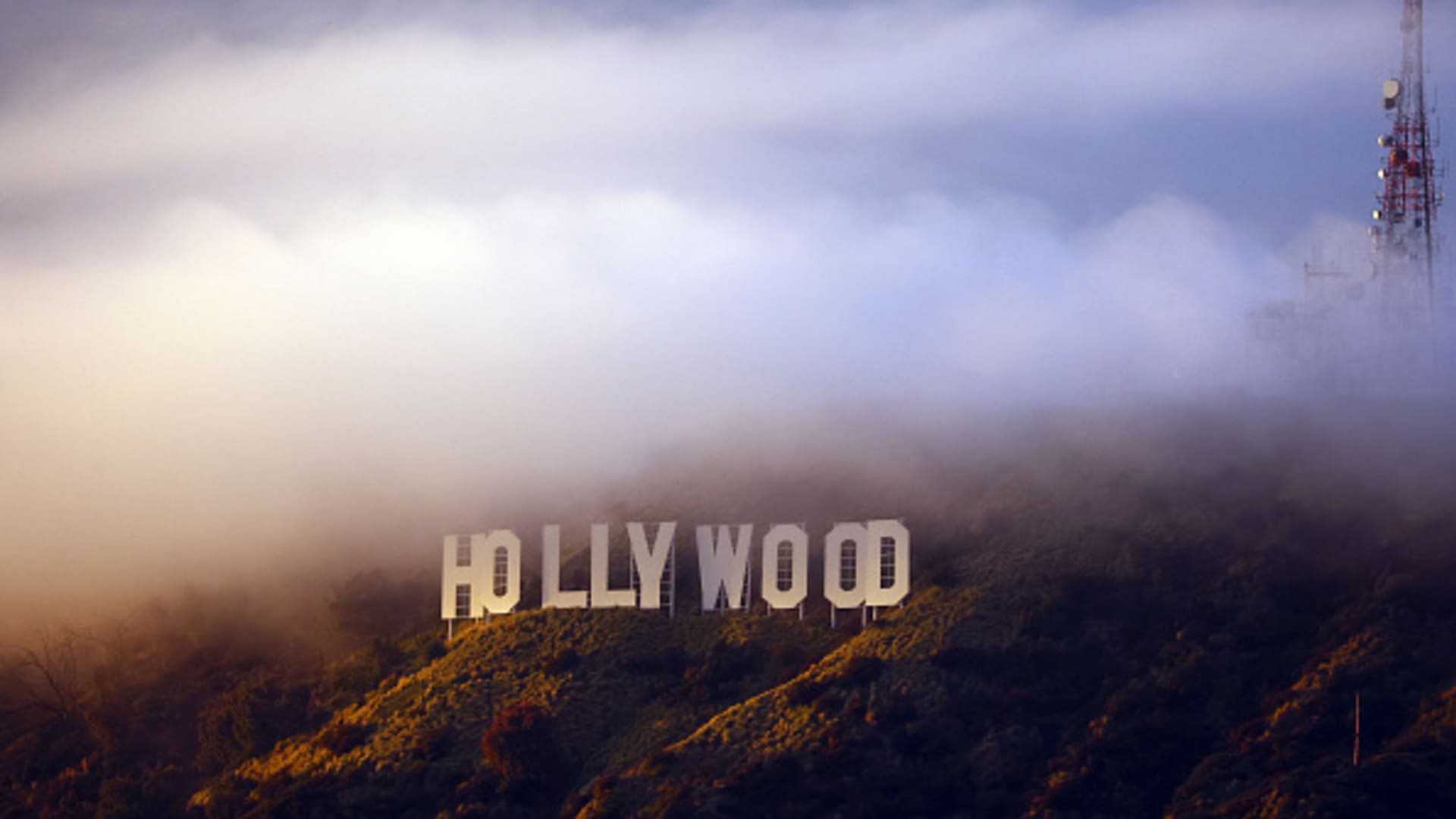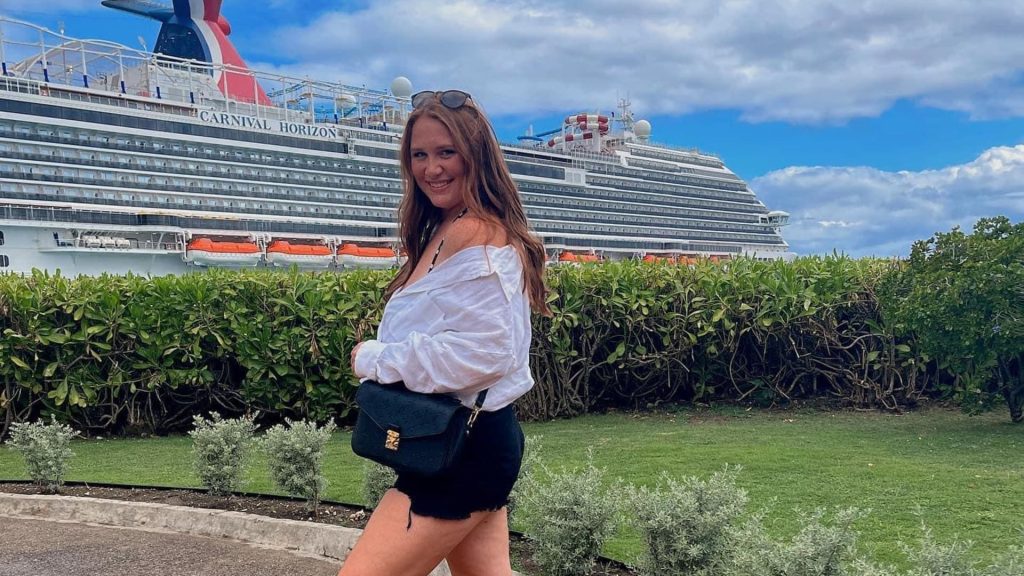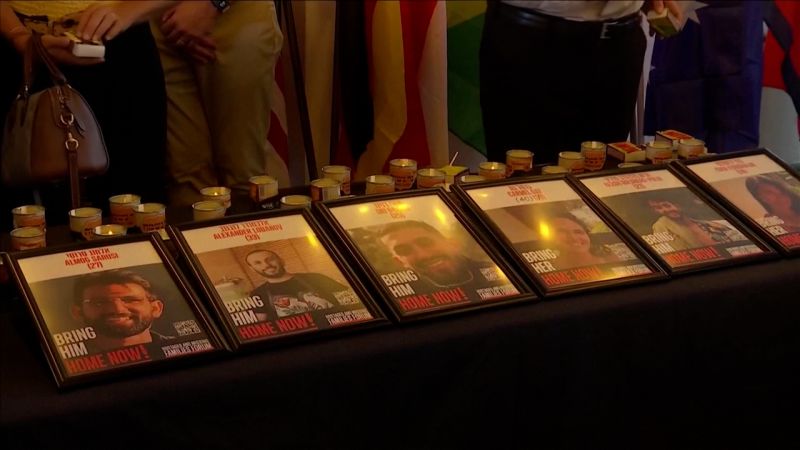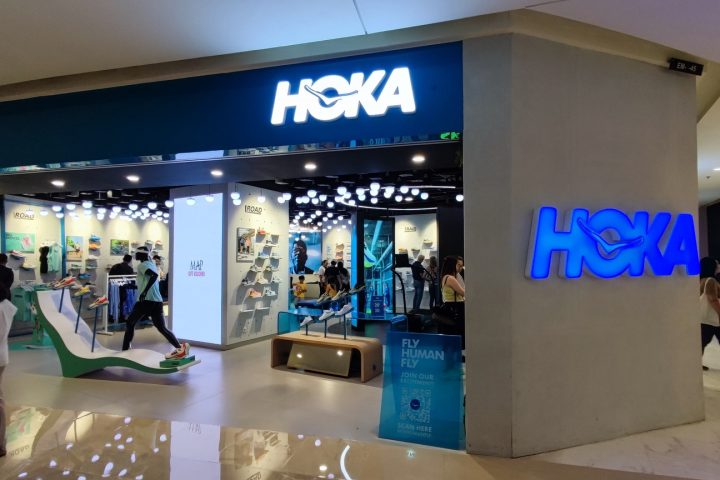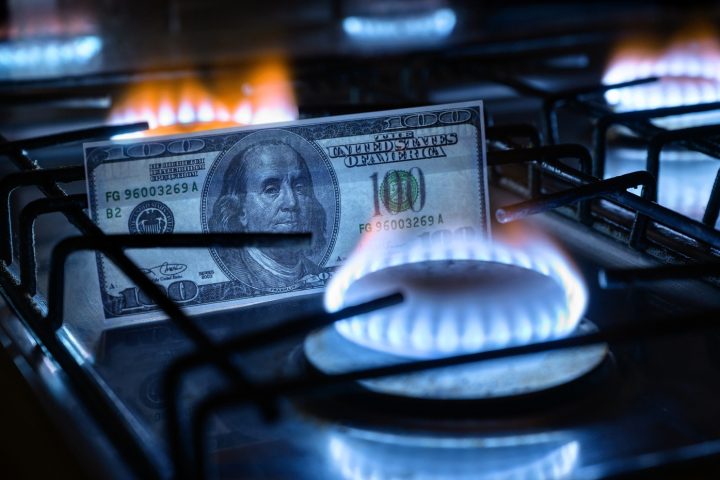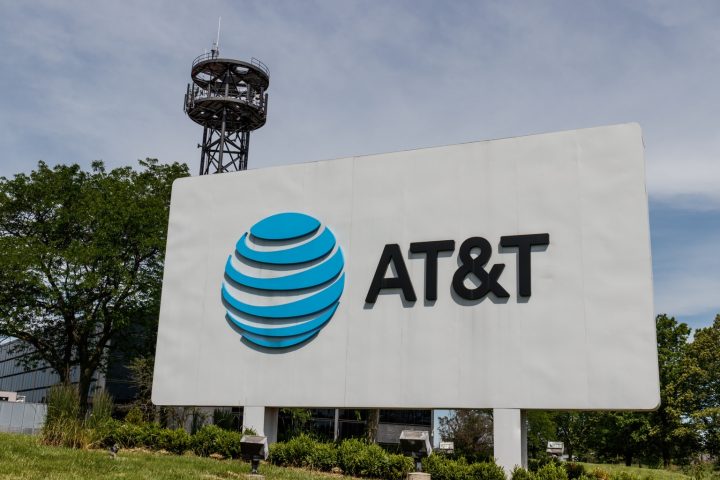For over 100 years, Hollywood has transported audiences to worlds outside their own, from the slick streets of New York City to the yellow bricks of Oz.
Hundreds of acres of land in Los Angeles are dedicated to crafting stories for the biggest and smallest screens, and movie studios are offering more ways than ever for cinema lovers to get a behind-the-scenes peek at how — and where — the magic is made.
“Touring the studios, being able to go where this stuff happened, to be in the physical space of all these things that for over 100 years now people have been watching, seems the most natural kind of tourist destination in the world,” said Robert Thompson, a professor at Syracuse University.
Hosted by Universal, Warner Bros., Sony and Paramount, studio lot tours showcase the movie-making process from set design and sound recording to costumes and props. These paid experiences not only drive revenue to the studios, but can also act as a training program for lower-level employees who are just getting started at the companies and as supplemental marketing for upcoming projects.
“Los Angeles is the only destination in the world where guests can visit multiple working studio lots, located in distinct neighborhoods in our city,” said Adam Burke, president and CEO of the Los Angeles Tourism Board and Convention Board.
The film industry brings in more than $100 billion in tourism, according to the Los Angeles Department of Public Works. Attractions like studio tours, the Hollywood sign, the Grauman’s Chinese Theatre and the Hollywood Walk of Fame entice tourists from near and far.
“While visitors are often drawn to studio tours by their favorite TV shows or movies … we hope they leave with a deeper understanding of the entertainment industry, LA’s unique culture and the city’s vibrant creative legacy,” Burke said.
Universal, Warner Bros., Sony and Paramount declined to specify how much their studio tours generate each year or how many people pass through their gates, but each noted that foot traffic and demand remain strong for their offerings.
“[Studio lot tours] can appeal to all different levels of people, the people who really are fascinated with the behind the scenes and how it works and how it gets made, and even for regular people that don’t have that level of curiosity, just the thrill of being present in the place where all of this stuff actually gets done,” Thompson said.
Sony
Situated in Culver City, Sony Pictures Studio is the newest tenant of its 45-acre lot. The complex was the original studios of Metro-Goldwyn-Mayer and is now home to popular TV staples “Jeopardy” and “Wheel of Fortune.”
Sony’s two-hour walking tour, which costs $55 per person, starts by taking guests through a recreation of the “Seinfeld” set and through a prop display with items from famed films and TV shows like “Spider-Man,” “Justified,” “Jumanji: Welcome to the Jungle,” “Groundhog Day,” “A League of Their Own” and “The Social Network.”
Guests will quickly see the massive 94-foot rainbow, constructed in 2012 by artist Tony Tasset, that looms over the studio. It is an homage to “The Wizard of Oz,” which was filmed on the lot more than 85 years ago. Tour guides eagerly point out which sound stages were the site of different moments from the film, including the infamous Wicked Witch melting sequence.
The lot’s modern tenants, “Jeopardy” and “Wheel of Fortune,” are among the most-watched programs on television outside of live sports. When the shows are not filming, guests can step onto the sets; otherwise, the tour guide will showcase different locations. Tours change daily based on which areas of the studio are open to the public and which are closed for production use.
Additionally, Sony allows guests to step into its Foley studio to see how sound is created for movies and television.
The cluttered space has a hodgepodge of flooring — wood, concrete, stone, gravel — multiple handles on doors with different kinds of locks, a shelf of various shoes, a kitchen set up with an assortment of plastic and metal bottles, cups, cutlery and, yes, some coconut shells, as well as a closet filled with jackets which can be used to make different zipper sounds.
Vehicles from “Breaking Bad” and “Ghostbusters” are also on display.
Warner Bros.
Warner Bros. goes big for patrons of its studio lot tours.
In addition to a guided tour of the grounds, which can range from one to three hours, depending on the package, the company has created a full interactive sound stage, known as Stage 48, to show off how movies and television shows get made and provide guests with plenty of free and paid photo opportunities.
The tour is a mix of walking and being carted around backlot neighborhoods. Guests are allowed to walk around the suburban filming locations for “Friends,” “The Big Bang Theory” and “Gilmore Girls” as well as the jungle area that “Jurassic Park,” “True Blood” and “Aquaman” have all used.
Tourists will notice that a number of non-Warner Bros. productions take place on the lot, which is common across all of Los Angeles’ studios. Productions will rent studio space at other studios based on need. For example, the famous upside-down kiss on the fire escape from 2002’s “Spider-Man” was produced by Sony but filmed on the Warner Bros.’ lot.
The guided tour also includes a brief walk through Warner Bros.’ expansive prop house. This area has replicas of the falcon statues from “The Maltese Falcon,” an entire section of marble and faux marble busts, and a room filled floor to ceiling with lamps, candelabras and chandeliers.
After the guided portion of the tour, guests arrive at Stage 48. This area features a recreation of Central Perk from “Friends,” including purchasable food and drinks.
Here fans of “Friends,” “The Big Bang Theory,” “Lord of the Rings,” the Batman films and “Harry Potter” can take photos on recreated sets and on green-screen sets. Some of these photo ops cost extra.
This area also has a number of costumes from famous classic films and interactive stations showcasing various elements of the post-production process.
Guests are then carted back to the welcome center to walk through an area where Warner Bros. showcases costumes and props from films in the DC cinematic universe like “Wonder Woman,” “Aquaman” and “The Flash,” costumes from “Game of Thrones,” and props and costumes from Harry Potter and the Fantastic Beasts franchises.
The one-hour guided tour, plus two hours unguided at Stage 48 costs $73 per ticket. Meanwhile, a two-hour guided tour, which comes with the Stage 48 access and lunch, costs $160, and the deluxe three-hour guided tour, which comes with a fine-dining lunch and access to Stage 48, is $330 per ticket.
Warner Bros. also recently launched its Turner Classic Movies tour, which takes guests through areas of the lot that were used for films like “Casablanca,” “My Fair Lady” and “The Music Man.”
Paramount
While the Warner Bros. tour focuses much of its attention on completed works of film and television, Paramount’s studio lot tour delves deep into how these movies and shows are made.
This tour features a combination of walking and being carting around the lot, as a guide — who is part of Paramount’s page program — brings guests to meet with the people who keep production running.
For the first six months of their employment with the studio, these pages serve as studio tour guides. After that, they become eligible to work utility positions around the lot, assist with audience management for TV shows and even be hired to do VIP tours.
The Paramount tour has three tiers: the regular studio tour, which lasts two hours and costs $65 per person; the premier tour, which lasts three hours and gives guests access to the archives and more of the backlot and costs $150 per person; and the VIP tour, which takes four hours and costs $215 per person.
That most in-depth option introduces guests to a number of tradesmen on the lot, including lighting crew members and signmakers, as well as an on-staff archivist who will walk them through a collection archival costumes and props, including jewelry. The VIP option also comes with a private lunch or breakfast.
Guests will get to see where director Alfred Hitchcock’s office was, walk around “New York” and peek into the “blue sky tank,” which has been used in “Star Trek IV: The Voyage Home,” “The Truman Show” and “The Curious Case of Benjamin Button.”
The prop warehouse features a number of vehicles, including the “egg mobile” from “Sonic the Hedgehog” and a pod from “Star Trek: Beyond,” as well as a life-size Bumblebee from the Transformer franchise.
Universal Studios
The Universal Studios Hollywood theme park actually began as a studio tour. Starting 60 years ago, guests were given exclusive access to the production lot and, over time, Universal began to introduce special effects attractions.
These have developed to include a staged flash flood, where 10,000 gallons of water rush downhill toward the guests, an earthquake simulation and, of course, the terrifying Jaws erupting from a small lake.
The one-hour studio lot tour attraction, which is included in the theme park’s admission, also features two immersive rides: One shows King Kong fighting off dinosaurs, and the other sees the cast of the Fast and Furious films entering into a high-speed street chase. Guests remain on their trams while experiencing these rides.
The standard tour also takes parkgoers through several classic sets including the Bates Motel from “Psycho,” the plane crash from “War of the Worlds” and the courthouse from “Back to the Future.”
General admission to the theme park ranges starts at $109 per person but can vary depending on the time of year — the holiday seasons are often more expensive.
Those who want a more in-depth look at the studio lot can purchase VIP tour packages, which include extended backstage access, a private trolley, a buffet lunch and front-of-the-line access for all rides and attractions at the park. The VIP experience can cost between $379 and $499 a person.
“The concept of Hollywood is so elusive and when guests visit Los Angeles there’s always a part that wonders ‘Will I see a movie star?,'” said Dennis Satterfield, director of studio tour operations at Universal Studios Hollywood. “The Studio Tour helps take some of that wonder away. Guests have access to a real movie studio, have a chance to see production, movie sets and maybe sometimes movie stars in their environment.”
Disclosure: Comcast is the parent company of NBCUniversal and CNBC.
Read the full article here
